I received this message from a fellow bass player last month, and it was such an awesome question that I made a note to myself to blog on it. So of course that means it got lost and I forgot all about it. BUT – lucky for you I know how to organize my TO DO list in my iPhone so I eventually stumbled upon it 🙂
Tiwa Obisesan asked:
“What would you say are the the things a bassist needs to have down like in their sleep if they want to be as good a bassist as they can? I mean I go to town on my scales and modes and chords and stuff but struggle to make them relevant in a playing situation.. Say, if i was grooving in the key of G would I run the mixolydian mode? Any advice would be awesome cause like you said on one of your blogs I dont have a lot of time to practice but when I do I want to make sure I’m practicing the right things.”
So, what does a bass player NEED to know? Well, to be honest, very little! I mean, there’s a lot of cool stuff that we are capable of doing with our instrument (i.e. slapping, two hand tapping, bebop soloing, etc.), but the majority of that stuff will REALLY only get you fired on a normal gig 😉 Normal gig meaning anything that you can make a living doing it… But what do you NEED to know, so well that you could do it in your sleep? That’s a fantastic question and I’m glad you asked it. It all comes down to the basics, really.
In my opinion, the only thing you really need to know about any genre/song/style you are currently playing is the answer to this question: “What is the right thing to play for this song?”
I know that kind of sounds dumb and redundant, but that’s what I ask myself before I strike a single note. I also know that it sounds quite simple, but it’s actually an immensely complicated answer. Because think about it – there’s an infinite amount of things that you COULD play over a set of changes… Which one is the RIGHT one? Which bass line will move the song forward in the way it’s supposed to? Which groove will suit this drum beat best? Which notes will not interfere with the melody? Which harmonies should I imply? How can I make this song FEEL best? How simple should I play? How complicated? How hard do I dig in, or how soft do I play? What register of the bass will this work best in: low, high, or somewhere in the middle?
All of these questions will be EASY for you to answer if you have the right tools and know how to use them. In other words, imagine that you work construction for a living. You show up to a job in the morning and you have NO IDEA what they want you to build until you get there. Once you address the situation, you ask yourself “What do I need for the job?” If you are experienced enough this will be an easy question to answer. Does the job require cutting wood? Good thing you brought your saw. Need to take some measurements first? That measuring tape will come in handy then. Drill some holes? Thankfully you know how to use a drill and have the correct sizes of drill bits…
So apply this concept to music. Do you know your key signatures like the back of your hand? Btw this question applies to YOU and not just Tiwa: Literally… Can you spell an Ab Major scale for me right now?
If it took longer than 3 seconds for you to say Ab, Bb, C, Db, Eb, F, G then I’d say that you don’t know them as well as you may have thought you knew them. Knowing ALL of the possible notes for a given song is such a great advantage to have. Same would go for chords; not just knowing HOW to figure them out but how to spell them and play them instantly.
How many F’s do you have on your bass? What frets/strings do they appear on? Can you name them all without thinking about them? Because there is a difference between KNOWING them and knowing how to FIGURE THEM OUT. How’s your reading? Understanding of music theory? Rhythmic subdivisions? Can you transcribe music onto paper?
When you inquired, “If I was grooving in the key of G would I run the mixolydian mode?” If that is the chord that everyone else is playing (which is G7) then yes, that’s a fantastic choice. If they’re playing G Maj7 or Gm9, the no don’t treat it like a V chord because it will sound dissonant. But then again Ab melodic minor would sound awesome too and give you some color tones like a b9 and a #9, as well as a #11 and b13 too. The larger your vocabulary is, the more you’ll have at your disposal when it comes time to improvise.
It can seem like sensory overload sometimes, but this is all considered just the “basics,” stuff that a 1st semester Freshman at a music school would learn within the first 8-10 weeks. So I’d say that the more you know about the basics the better off you will be 🙂 It can get much more intricate from there, of course, but I’d say really build a SOLID foundation in the basics before moving ahead. And remember that there’s a difference between KNOWING and knowing how to figure it out.


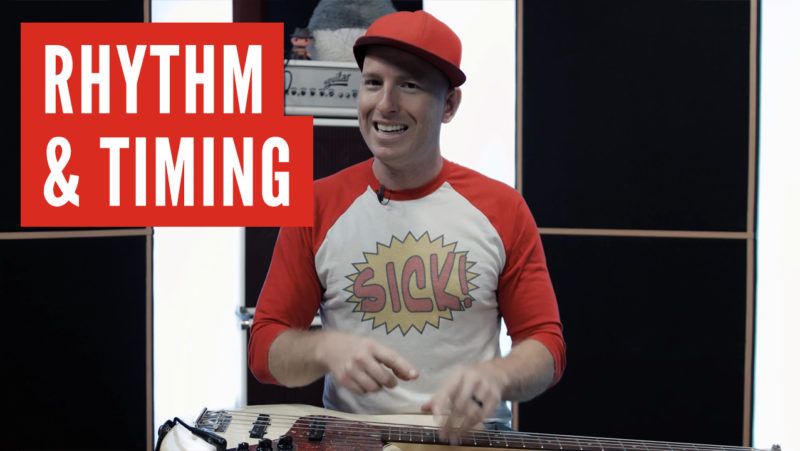
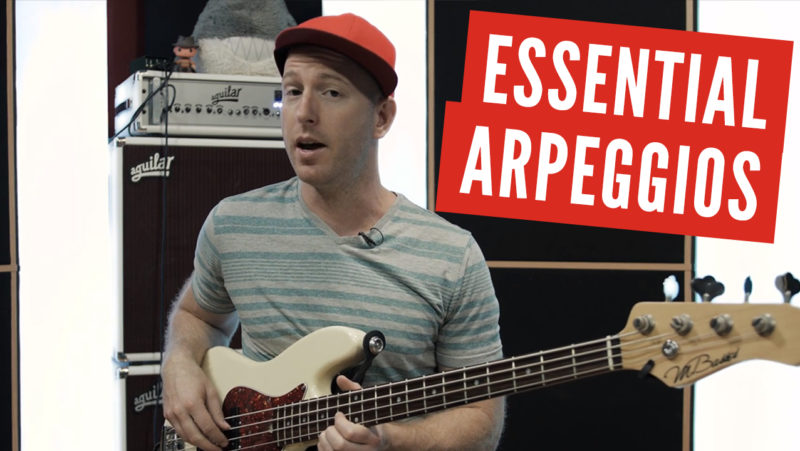
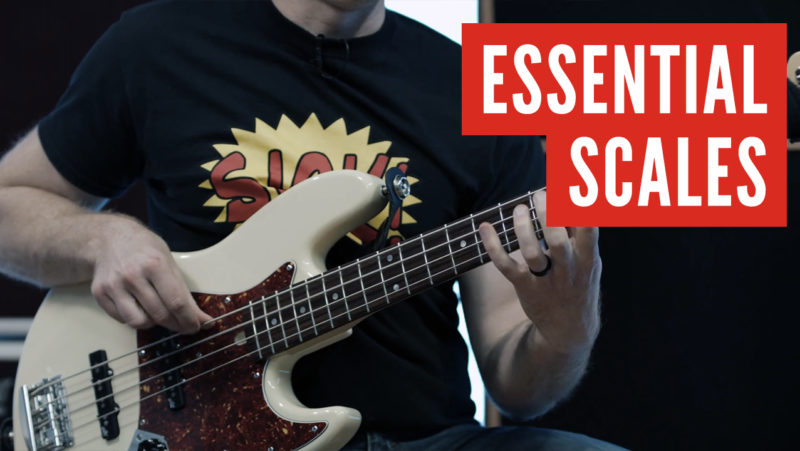
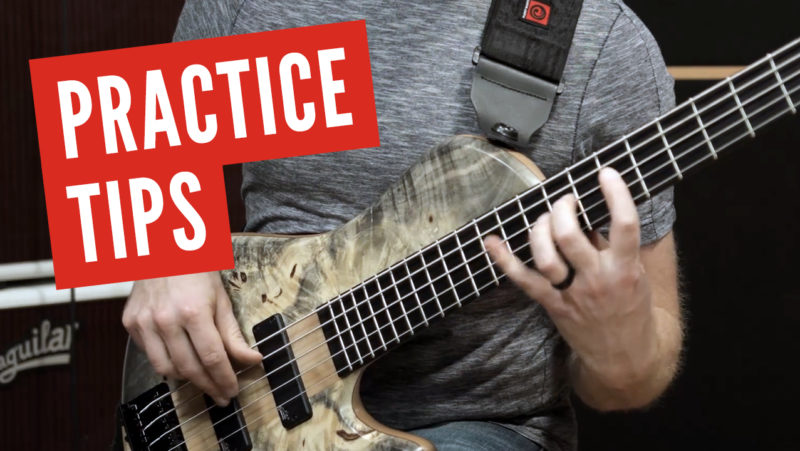
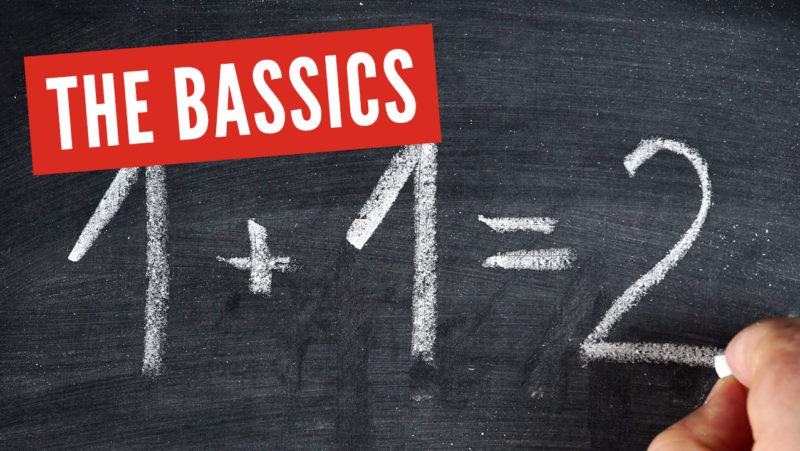
John Hewitt
Interesting… I took the challenge and figured out the Ab scale in my head. The proccess sort of went like… Circle of 5ths (F, Bb, Eb, Ab) okay, so 4 flats, then I did the order of sharps (B,E,A,D) so knew the accidentals, then I tried to say the scale out loud. I got confused and I’m really best at visualizing the keyboard in my head so I defaulted to WWHWWWH steps in the major scale. I got the right answer and used one method to check the other. It took me probably 30 seconds though which is much too long.
I started thinking however, I know I can “instantly” play in the key of Ab all over the bass because I know where the Ab root notes are and I know instantly the patterns starting on the first, second & forth finger so I’m sure I can snake an Ab scale up and down all over the neck and also know and hear the modes as well so don’t always have to start on the root. Obviously I’m slow on the theory stuff by taking so long to receit the scale in my head but I can play it instantly on the bass. I ask myself now… Do I really KNOW an Ab scale??? I’m also terrible at writing out music on paper although awesome at sight reading and my ear’s great as I usually have a piece down after playing it once along with the tape. I used to practice by playing along with all the commercial breaks while watching TV. So I’m awesome at transcribing to my instrument but terrible at doing it on paper. I think it comes down to experience. I rarely transcribe to paper and rarely have to say the notes of a scale out load.
I was always really impressed with a mechanical engineer friend who was awesome at sketching and could fluently express his ideas on paper. It was impressive and I am sure this skill opened a lot of doors for him. It was simply great communication. I wish I could write out my imusical ideas instantly like he could express his mechanical ideas but don’t see how I can ever develop this skill. Maybe if I hung out with more highly educated musicians that already have this and communicate in this way.
What do you think?